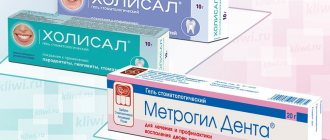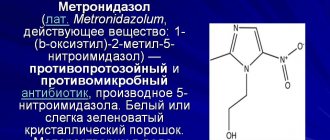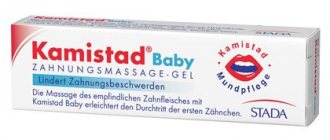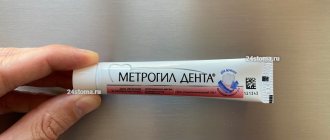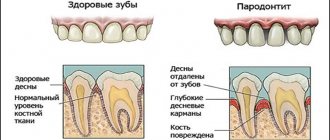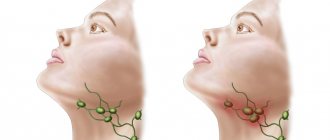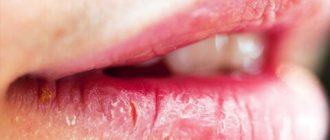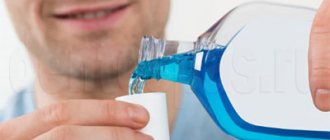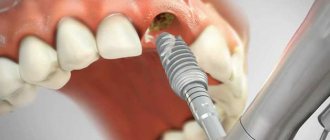September 11, 2018
Today, alternative and complementary treatment methods are very popular, allowing one to achieve good results when it comes to surgical, therapeutic dentistry, periodontics and gum treatment. As you know, gums are an important component of the oral cavity, whose health directly affects the teeth. Therefore, in case of painful conditions, in various pathologies, as they say, all methods of struggle are good. The main thing is that they exist, at least that’s what the Russian manufacturer of special films, Diplen Denta, assures. This invention is unique in its kind and has no analogues yet.
The editors of the UltraSmile.ru portal cannot ignore this topic, because it would be very useful to many, because almost everyone has problems with gums. Read the material - you will find out what interesting, and, most importantly, useful, the research company came up with.
What is Diplene film?
“Diplen Denta” is a double-sided self-adhesive film, which, on the one hand, fits tightly to the moist mucosa and has a positive effect on it, and on the other, acts as a protective barrier that reduces the impact of negative environmental factors. The material is soft, plastic, and in most cases does not cause rejection or irritation.
It was developed to help people get rid of various dental problems, and in particular: from acute and chronic inflammatory processes on the gums, from gingivitis and any of its stages, stomatitis, periodontitis, from various injuries and poorly healing wounds, injuries soft tissues, burns of the mucous membrane, bacterial lesions, normalization of the microflora of the oral cavity, elimination of swelling and bleeding. They are also successfully used during the rehabilitation period after intraosseous implantation, to relieve pain from inflammation of the gums, and as a prevention of infectious diseases in people who wear removable dentures and often rub the mucous membrane.
Important!
The use of Diplen Dent films for diseases such as gingivitis and periodontitis should not be an independent measure - this will not get rid of the problem. They are recommended to be used only in complex therapy and only after professional oral hygiene (removal of subgingival and supragingival deposits, gum curettage as indicated).
Diplene Denta - dental self-adhesive film
Diplen Dent Tape
960 rub.
«Deeplen Dent
» — dental self-adhesive film. It is intended for use in periodontology, therapeutic, surgical and orthopedic dentistry. Different types of film differ in the content of antibacterial, anti-inflammatory, analgesic, remineralizing and other components.
Diplen Denta films are the most effective means for carrying out local antimicrobial and anti-inflammatory therapy in the oral cavity. They are applied directly to the affected area and have a direct effect on the cause of the disease. The release of medicinal components continues for several (6-8) hours. The therapeutic effect is achieved quickly; after several gluing sessions, acute inflammation is eliminated, bleeding and suppuration stops, swelling is relieved, and teeth are strengthened. Films - soft, thin, transparent - adhere without any auxiliary means to soft, hard, wound and burn surfaces of the oral cavity. In terms of convenience and ease of use and the achieved therapeutic and prophylactic effect, they are superior to all world analogues intended for this purpose.
Indications for the use of diplene film are:
:
- Gingivitis, chronic periodontitis, generalized moderate, moderate and severe, rapidly progressive severe disease
- Ulcerative-necrotic stomatitis and resulting from wearing dentures
- Prevention of caries and antibacterial therapy in patients with fixed orthodontic appliances
- Application anesthesia and relief of acute and chronic pain
- Lesions of the mucous membrane and red border of the lip, with collagenosis, herpes viral infection, aphthous stomatitis, lichen planus, leptotrichiasis
- Postoperative wounds, injuries, burns in the oral cavity, long-term non-healing wounds.
- Intraosseous dental implantation (postoperative period)
- Gentle teeth whitening.
The following types of film exist
:
- Diplen Denta L (with lincomycin)
- Diplene Denta M (with metronidazole)
- Diplen Denta G (with gentamicin)
- Diplene Denta K (with clindamycin)
- Diplene Denta S (with solcoseryl)
- Diplene Denta F (with fluorine and chlorhexidine)
- Diplene Denta X (with chlorhexidine)
- Diplen Denta LH (with lidocaine and chlorhexidine)
- Diplen Denta HD (with dexamethasone and chlorhexidine)
- Diplene Denta PF (with hydrogen peroxide for teeth whitening)
- Diplene (sterile membrane) price must be agreed with our manager (used as a resorption barrier in the surgical treatment of periodontitis).
Diplen-Dent films are recommended and widely used in leading dental centers.
Russian developers have proposed a fundamentally new type of polymer films, Diplen-Denta, in which good adhesion to the mucous membrane is combined with the possibility of prolonged administration of drugs. Diplen-Dent films consist of two layers - hydrophilic and hydrophobic, and depending on the location of the layer, two sides of the film are distinguished. The hydrophilic layer, or side, has the ability to adhere to the moist mucous membrane and wound surface. The outer, hydrophobic layer is plastic, well modeled on the surface of the oral mucosa and isolates the affected area from external mechanical, chemical and bacterial influences. The films contain various antibacterial, antiprotozoal, antiseptic, anti-inflammatory, keratoplasty, and analgesic pharmacological drugs. The advantage of these films is that they can be used by patients themselves at home, both in the active treatment phase and in the remission phase to prevent inflammatory processes. Today, there are various types of Diplen-Dent films on the market, which, depending on the content of the pharmacological drug, can be divided into antibacterial, antiseptic, keratoplastic, antiprotozoal and with a combined effect.
Antibacterial adhesive dental films "Diplen-Denta"
- "Diplen-Denta L", containing lincomycin hydrochloride in an amount of 0.05–0.09 mg/cm2 of film;
- "Diplen-Denta K", containing clindamycin phosphate in an amount of 0.05–0.09 mg/cm2 of film;
- "Diplen-Denta G", containing gentamicin sulfate in an amount of 0.05–0.09 mg/cm2 of film.
Antiprotozoal adhesive dental films "Diplen-Denta"
- "Diplen-Denta M", containing metronidazole in an amount of 0.01–0.03 mg/cm2 of film.
- Antiseptic adhesive dental films "Diplen-Denta"
- "Diplen-Denta X", containing chlorhexidine bigluconate in an amount of 0.01–0.03 mg/cm2 of film.
Keratoplastic adhesive dental films “Diplen-Denta S”
- "Diplen-Denta S", containing solcoseryl in an amount of 0.01–0.03 mg/cm2 of film.
- Adhesive dental films "Diplen-Denta" with combined action
- "Diplen-Denta HD", containing chlorhexidine bigluconate and dexamethasone in an amount of 0.01–0.03 mg/cm2 of film;
- "Diplen-Denta LH", containing lidocaine hydrochloride in an amount of 0.03–0.05 mg/cm2 of film and chlorhexidine digluconate in the amount of 0.01–0.03 mg/cm2 of film.
Diplene Denta tape buy
How to use the product correctly
Many Internet users are looking for information on how to properly use Diplene film. The instructions for its use are very simple, but before that it is important to emphasize several factors:
- There are different types of film: each of them, in addition to the antibacterial and antiseptic components, contains additional active medicinal components that can give different effects. That is why it is important to choose an option that will not cause adverse reactions and will not aggravate the condition of the mucous membrane. In the presence of diseases such as gingivitis, stomatitis, periodontitis, it is very important not to harm already sensitive and inflamed gums. So, before purchasing film, consult your doctor.
- It is better if your doctor teaches you handling techniques: you will find instructions in each package. The advantage is that this film can be used at home, i.e. on one's own. But it is still recommended that the first few procedures be carried out by a specialist, who will prescribe a course of treatment - for some this may be 10 days, for others - less or more.
The photo shows the film.
So, now let's move directly to the instructions - they are standard for all modifications of the Diplen Denta film:
- the application should be applied only after brushing your teeth and no more than several times a day,
- measure the required amount of film based on the area you are going to work on: the manufacturer recommends cutting a strip 50 millimeters long and 10 millimeters wide. The films themselves have dimensions of 50*100, which means one package is enough for about 10 uses. By the way, the cost of one package is about 500-700 rubles,
- With the hydrophilic side, press the material firmly against the mucous membrane and fix it for 1-2 hours,
- for the first time, it is better to control the condition of the gums: “Diplene” is a transparent film, so you can easily see all the changes underneath it. If discomfort, pain, change in color, or irritation occurs, immediately remove the material from the surface of the mucosa.
Now we will list in detail what types of films are actively used in dentistry today.
The following types of film exist
- Diplen Denta L (with lincomycin)
- Diplene Denta M (with metronidazole)
- Diplen Denta G (with gentamicin)
- Diplene Denta K (with clindamycin)
- Diplene Denta S (with solcoseryl)
- Diplene Denta F (with fluorine and chlorhexidine)
- Diplene Denta X (with chlorhexidine)
- Diplen Denta LH (with lidocaine and chlorhexidine)
- Diplen Denta HD (with dexamethasone and chlorhexidine)
- Diplene Denta PF (with hydrogen peroxide for teeth whitening)
- Diplene (sterile membrane) (used as a resorption barrier in the surgical treatment of periodontitis).
Russian developers have proposed a fundamentally new type of polymer films, Diplen-Denta, in which good adhesion to the mucous membrane is combined with the possibility of prolonged administration of drugs. Diplen-Dent films consist of two layers - hydrophilic and hydrophobic, and depending on the location of the layer, two sides of the film are distinguished. The hydrophilic layer, or side, has the ability to adhere to the moist mucous membrane and wound surface. The outer, hydrophobic layer is plastic, well modeled on the surface of the oral mucosa and isolates the affected area from external mechanical, chemical and bacterial influences. The films contain various antibacterial, antiprotozoal, antiseptic, anti-inflammatory, keratoplasty, and analgesic pharmacological drugs. The advantage of these films is that they can be used by patients themselves at home, both in the active treatment phase and in the remission phase to prevent inflammatory processes.
Today, there are various types of Diplen-Dent films on the market, which, depending on the content of the pharmacological drug, can be divided into antibacterial, antiseptic, keratoplastic, antiprotozoal and with a combined effect.
"Diplen Dent X"
The main active ingredient is chlorhexidine or chlorhexidine bigluconate. It helps to cope with inflammatory and infectious processes in the oral cavity, “kills” pathogenic microflora, and is suitable for the treatment of aphthous and necrotizing ulcerative stomatitis, and for rehabilitation after intraosseous implantation. The use of this material is also indicated for patients who, due to edentia, have chosen to wear removable structures, which is why they risk injuring and rubbing the mucous membrane - the film will prevent such phenomena, and will also overcome irritation, if it occurs.
Indications for the use of diplene film are:
- Gingivitis, chronic periodontitis, generalized moderate, moderate and severe, rapidly progressive severe disease.
- Ulcerative-necrotic stomatitis and resulting from wearing dentures.
- Prevention of caries and antibacterial therapy in patients with fixed orthodontic appliances.
- Application anesthesia and relief of acute and chronic pain.
- Lesions of the mucous membrane and red border of the lip, with collagenosis, herpes viral infection, aphthous stomatitis, lichen planus, leptotrichiasis.
- Postoperative wounds, injuries, burns in the oral cavity, long-term non-healing wounds.
- Intraosseous dental implantation (postoperative period).
- Gentle teeth whitening.
"Diplen Denta S"
Solcoseryl has a therapeutic effect in this type of film. It would be appropriate to use it when it is necessary to take care of the restoration and rapid regeneration of mucous membranes after erosive and ulcerative injuries and injuries of various pathogenesis (chemical burns, mechanical stress). Applications also promote rapid postoperative wound healing during the rehabilitation period after laser exposure and electrocoagulation of tissue.
Interesting! Some strips of the Diplen series are universal, as they are used for the skin of the body, and in ophthalmology, and in gynecology, and in neurosurgery. For example, a drug with solcoseryl is suitable for application to the body in areas of erosion and injury.
"Diplen Denta F"
The main effect in it is fluoride - this is, perhaps, one of the few strips in the series that is suitable for use on teeth that are sensitive to temperature changes and with enamel hyperesthesia. This option is also an excellent prevention of caries, as it allows you to strengthen the enamel and increase its resistance to irritating factors.
"Diplen-LH"
Chlorhexidine and lidocaine in the composition of the drug will be an ideal option for a person who suffers from pronounced pain and discomfort as a result of surgical intervention (for example, after cutting the frenulum, during gum curettage, during the treatment of ulcers). This drug is also not contraindicated for children during the period of rehabilitation and recovery after the removal of baby teeth.
"Diplen Denta PF"
A worthy option not only for those who want to strengthen their teeth enamel, but also for those who want to whiten it naturally and gently. The strips have a good effect in cases where a change in shade has occurred under the influence of coloring pigment from food, smoking, and even diseases such as fluorosis and hypoplasia. They will also help those people who are faced with tooth pigmentation due to age-related changes.
"Diplen Denta K"
“K” means that this film contains the drug clindomecin, which causes the inflammatory process and its accompanying phenomena to recede: swelling and bleeding of the mucous membrane, pain and discomfort resulting from inflammation of periodontal tissue.
Important!
Unfortunately, if you have reached advanced stages of periodontitis and periodontal disease, then it is almost impossible to save the situation and completely get rid of the problem.
Practice has shown that, subject to comprehensive treatment, the patient still constantly experiences relapses, teeth become loose and displaced, roots become exposed - the problem can only be solved by removing them. But today this does not sound like a death sentence, because implantation methods with immediate loading of a prosthesis will restore your smile in just a few days, and will allow you to forget about dental troubles for the rest of your life. By the way, it does not stop there; in addition to strips, it produces disinfectants and various antiseptics, which are also used on space stations of the Russian and American states1. This fact allows us to believe in the effectiveness of drugs for the oral cavity, for the restoration and treatment of mucous membranes, and for teeth whitening. But it is one thing to recover from various surgical interventions not related to gum disease, and another to suffer from them.
Our advice to you: it’s much better not to let it come to this at all. In addition, the condition of the gums is quite easy to control and maintain in order: to do this, visit the dentist several times a year, carry out professional oral hygiene, and immediately take action if bleeding gums appear.
Notice
: Undefined variable: post_id in
/home/c/ch75405/public_html/wp-content/themes/UltraSmile/single-item.php
on line
45 Notice
: Undefined variable: full in
/home/c/ch75405/public_html/wp-content /themes/UltraSmile/single-item.php
on line
46
Rate this article:
( 2 ratings, average: 5.00 out of 5)
gum disease
- According to the company's official website diplen.com.
— Designed for use in periodontics, therapeutic, surgical and orthopedic dentistry. — Different types of film differ in the content of antibacterial, anti-inflammatory, analgesic, remineralizing and other components. — Diplen Denta films are the most effective means for carrying out local antimicrobial and anti-inflammatory therapy in the oral cavity. They are applied directly to the affected area and have a direct effect on the cause of the disease. The release of medicinal components continues for several (6-8) hours. The therapeutic effect is achieved quickly; after several gluing sessions, acute inflammation is eliminated, bleeding and suppuration stops, swelling is relieved, and teeth are strengthened. Films - soft, thin, transparent - adhere without any auxiliary means to soft, hard, wound and burn surfaces of the oral cavity. — In terms of convenience and ease of use and the achieved therapeutic and prophylactic effect, they are superior to all world analogues intended for this purpose. INDICATIONS FOR USE: - gingivitis, chronic periodontitis, generalized moderate, moderate and severe; - ulcerative-necrotic stomatitis and resulting from wearing dentures; — prevention of caries and antibacterial therapy in patients with fixed orthodontic appliances; — application anesthesia and relief of acute and chronic pain; - lesions of the mucous membrane and red border of the lip, with collagenosis, herpes viral infection, aphthous stomatitis, lichen planus, leptotrichiasis; — postoperative wounds, injuries, burns in the oral cavity, long-term non-healing wounds; — intraosseous dental implantation (postoperative period); - mild teeth whitening.
TYPES OF FILM: — Diplen Denta L (with lincomycin) — Diplene Denta M (with metronidazole) — Diplene Denta G (with gentamicin) — Diplene Denta K (with clindamycin) — Diplene Denta S (with solcoseryl) — Diplene Denta F (with fluorine and chlorhexidine) - Diplen Denta X (with chlorhexidine) - Diplene Denta LH (with lidocaine and chlorhexidine) - Diplene Denta HD (with dexamethasone and chlorhexidine) - Diplene Denta PF (with hydrogen peroxide for teeth whitening) - Diplene (sterile membrane used as a resorption barrier in the surgical treatment of periodontitis).
ANTIBACTERIAL
adhesive dental films “Diplen-Denta” - “Diplen-Denta L”, containing lincomycin hydrochloride in an amount of 0.05–0.09 mg/cm2 of film; — “Diplen-Denta K”, containing clindamycin phosphate in an amount of 0.05–0.09 mg/cm2 of film; — “Diplen-Denta G”, containing gentamicin sulfate in an amount of 0.05–0.09 mg/cm2 of film.
ANTIPROTOSAL adhesive dental films "Diplen-Denta" - "Diplen-Denta M", containing metronidazole in the amount of 0.01–0.03 mg/cm2 of film. — Antiseptic adhesive dental films “Diplen-Denta” — “Diplene-Denta X”, containing chlorhexidine bigluconate in an amount of 0.01–0.03 mg/cm2 of film.
KERATOPLASTIC
adhesive dental films "Diplen-Denta S" - "Diplen-Denta S", containing solcoseryl in an amount of 0.01–0.03 mg/cm2 of film. — Adhesive dental films “Diplen-Denta” with a combined effect — “Diplen-Denta HD”, containing chlorhexidine bigluconate and dexamethasone in the amount of 0.01–0.03 mg/cm2 of film; — “Diplen-Denta LH”, containing lidocaine hydrochloride in an amount of 0.03–0.05 mg/cm2 of film and chlorhexidine digluconate in the amount of 0.01–0.03 mg/cm2 of film.


